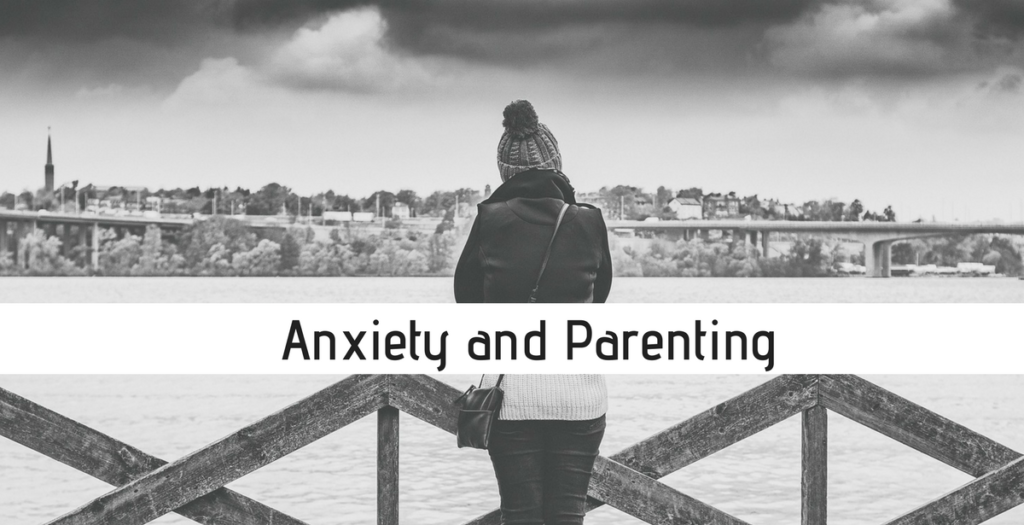
Worrying about our child is a normal part of parenting, especially in today’s day and age. Parents are bombarded with information about how to raise heathy, well-rounded, confident children through social media, parenting “experts” in magazines and tv, and numerous other sources. This normal response can quickly escalate to parenting out of fear and anxiety, which can then impact our children in ways we don’t want. Anxiety disorders are the most prevalent psychiatric conditions in adults, and most adults with anxiety disorders report that their symptoms started in childhood. Seeking treatment early can help parents learn to support their child so that anxiety doesn’t become a lifelong challenge.
HOW DOES ANXIETY AFFECT THE PARENT – CHILD RELATIONSHIP?
Parents are a child’s model for navigating the world. We influence how they think, react and feel as they learn and grow. When a parent views the world through a lens of fear and worry, children can model these feelings in their response to the environment. It’s natural to want to shield our child from disappointment, heartache or pain, however our efforts to protect them from difficult emotions actually take away the opportunity for our child to learn the valuable skills of problem solving and navigating stressful situations. When children do not master these skills, they learn it is easier to avoid things that are novel or perceived to be “scary.” They also learn to wait for someone to rescue or protect them.
When a parent is nervous about their child experiencing something new, for example starting kindergarten, riding a bike or having their first sleepover, and their talk about the event reflects their worry, the parent may be projecting their nervous feelings about the situation onto the child. Stress is contagious; our child senses this stress, becomes overwhelmed with the situation and then increases parents stress and anxiety. This cycle between parent and child can begin during early years and grows into greater concerns. Our child learns the world is too dangerous to explore and they begin to develop their own stress responses. Parents may feel their child is shy, apprehensive, quiet or fragile and their child may display their anxiety through disruptive behaviors such as crying, screaming, biting and hitting.
If a child falls off a bike when learning to ride we don’t get rid of the bike, we teach our child to get back on the bike a practice again and again. Teaching children to gain mastery over their anxiety works much the same way….through exposure to novel and sometimes difficult experiences with the parent coaching and encouraging them along the way.
WHAT IS A TREATMENT OPTION?
Anxiety is one of the most treatable mental health problems. Early intervention is the key to break the cycle developed between parent and child. Parent Children Interaction Therapy (PCIT) is a short-term, specialized behavior management program designed for young children experiencing behavioral and/or emotional difficulties and their families. PCIT teaches caregivers to manage their child’s difficult behaviors, while increasing their positive behaviors. PCIT works with the child and caregiver together to improve behavior and reduce parenting stress. This treatment modality consists of weekly sessions conducted in two treatment phases:
CHILD DIRECTED INTERACTION (CDI)
Caregivers are taught the PRIDE skills: Praise, Reflect, Imitate, Describe and Enjoyment. These skills promote positive child behaviors and improves the quality of the parent-child relationship. In CDI, parents learn to follow their child’s lead in play and provide positive attention combined with active ignoring of misbehaviors. They learn the importance of avoiding commands, questions, criticism and sarcasm.
PARENT DIRECTED INTERACTION (PDI)
Caregivers learn to use effective commands and consistent follow through. PDI focus includes praise for compliance and a timeout procedure for noncompliance. The PCIT therapist helps caregivers manage their child’s behaviors in many settings.
HOW DOES PCIT WORK?
PCIT is an exceptionally effective treatment backed by over 30 years of research. Live coaching is a hallmark of PCIT. The therapist observes the caregiver and child interactions through play, then provide coaching on the PCIT skills through a “bug-in-the-ear” system. The advantage of live coaching are skills are acquired more rapidly by caregivers, as they practice in the moment. Therapist provide caring support as caregivers gain confidence and master skills. Caregivers receive immediate feedback about strategies to manage the child’s challenging behaviors. At the conclusion of each therapy session, therapist and caregivers decide which skills to focus on during daily five minute home practice. Five minute daily home practice is important to PCIT treatment progress and caregivers mastery of skills.
WHO IS PCIT FOR?
Children ages 2 to 7 who display any or all of the following:
- Parent-child relational problems
- Refusal and defiance of adult requests
- Easy loss of temper
- Purposeful annoyance of others
- Destruction of property
- Difficulty staying seated
- Difficulty playing quietly
- Difficulty taking turns
- Difficulty with mealtime behaviors and feeding difficulties
- Difficulty with bedtime routine and sleep habits
- Difficulty with transitions and change
- Attention and focus related issues
WHAT DIAGNOSES MIGHT PCIT TREAT?
- Oppositional defiant disorder (ODD)
- Attention-deficit/hyperactivity disorder (ADHD)
- Autism spectrum disorder (ASD)
- Other disruptive behavior disorders (DBDs)
- Anxiety disorders
- Selective mutism
Where can I go for help?
If you are interested in learning more about reducing childhood anxiety, increasing focus and attention, improving compliance or mastering transition times find a PCIT provider near you. Resolve Counseling and Wellness offers same week appointments and has multiple licensed PCIT therapists on staff.
















